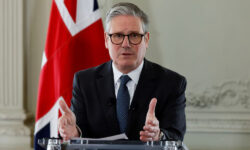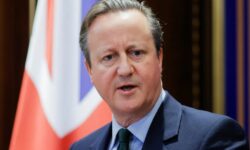
Chancellor Rachel Reeves has set out her plans for the UK economy in her Spring Statement and is on track to meet her self-imposed rules on the public finances, which she has said are “non-negotiable”.
On the face of it, that sounds like a good thing. So why are people saying that she may struggle to meet them and the only way she may do so is by raising taxes?
It’s a complicated picture, but there are essentially five steps to get from where we are now to tax rises.
Not much spare money
Ahead of the Spring Statement, the chancellor had been under pressure, with speculation over how she would be able to meet her self-imposed financial rules, one of which is to not borrow to fund day-to-day spending.
In October, the government’s official economic forecaster, the Office for Budget Responsibility (OBR), said that Reeves would be able to meet that rule with £9.9bn to spare.
An increase in government borrowing costs since then meant that that room to spare had disappeared. Now big welfare cuts and spending reductions in the Spring Statement have restored it.
Almost £10bn may sound like a lot, but it’s a relatively small amount in an economy that spends £1 trillion a year, and raises around the same in tax.
In fact it is the third lowest margin a chancellor has left themselves since 2010. The average headroom over that time is three times bigger at £30bn.
Predicting the future is difficult
Which brings us on to the precarious nature of making economic forecasts.
“All forecasts turn out to be wrong. Weather forecasts also turn out to be wrong,” says Mr Hughes.
Predicting what will happen in the future, especially in five years’ time is hard, and is subject to revisions. You could be forgiven for not predicting a war or a pandemic, for instance.
The respected think tank, the Institute for Fiscal Studies (IFS), has already said there is “a good chance that economic and fiscal forecasts will deteriorate significantly between now and an Autumn Budget”.
A case in point, only hours after Reeves delivered her statement in parliament, US President Donald Trump announced new 25% tariffs on cars and car parts coming into the US.





